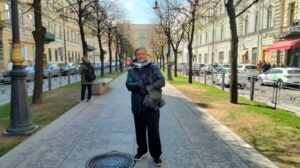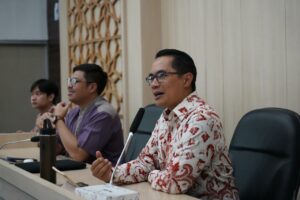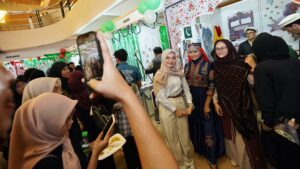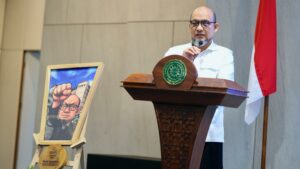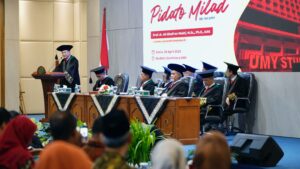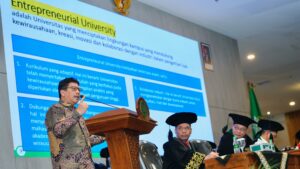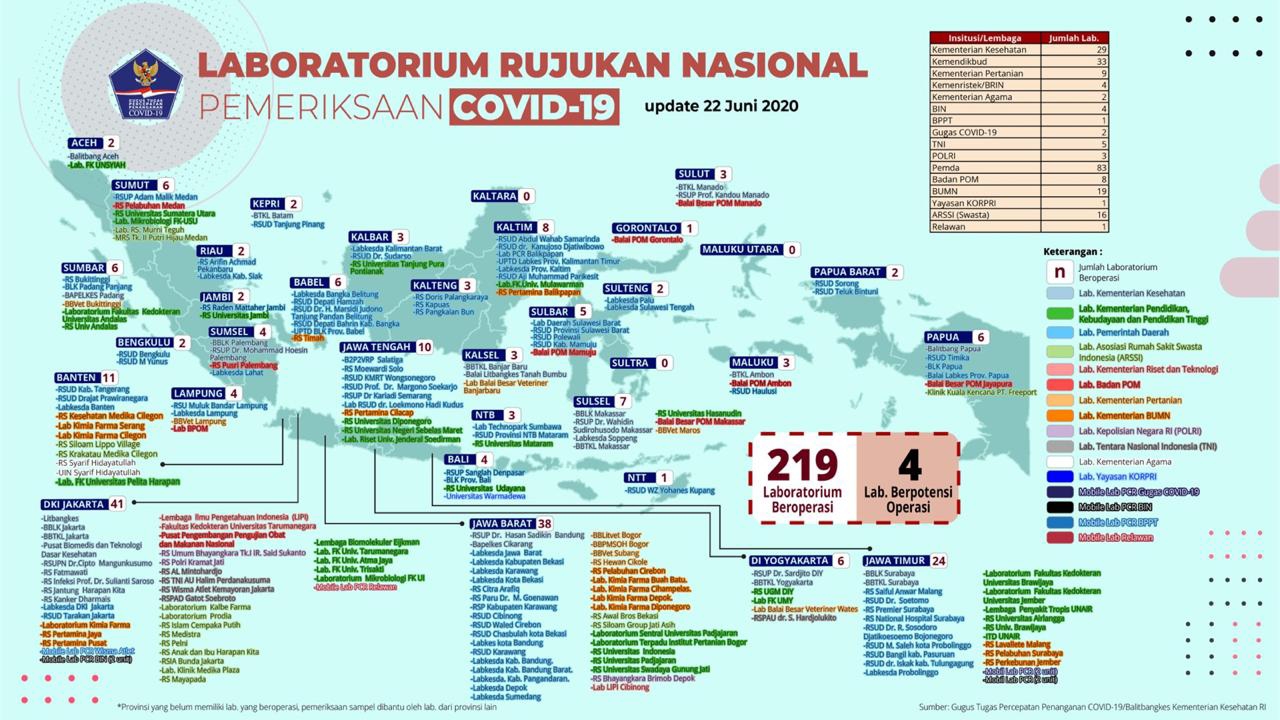 The Laboratory at the Universitas Muhammadiyah Yogyakarta Faculty of Medicine (FK UMY) became the national reference for testing COVID-19 test samples. The FK UMY lab is one of six laboratories appointed by the Indonesian Government to become a reference in the Special Region of Yogyakarta, beside RSUP Dr. Sardjito, BBTKL Yogyakarta, RS UGM DIY, Wates Veterinary Laboratory Center, and RSPAU Dr. S. Hardjolukito.
The Laboratory at the Universitas Muhammadiyah Yogyakarta Faculty of Medicine (FK UMY) became the national reference for testing COVID-19 test samples. The FK UMY lab is one of six laboratories appointed by the Indonesian Government to become a reference in the Special Region of Yogyakarta, beside RSUP Dr. Sardjito, BBTKL Yogyakarta, RS UGM DIY, Wates Veterinary Laboratory Center, and RSPAU Dr. S. Hardjolukito.
The Laboratorium which became the reference was Molecular Medicine and Therapy Research Laboratory (MMT Lab) located in the Dental Hospital and Oral Mouth Medical Center. The laboratory, which was officially opened on December 27, 2019, has the Biosafety Level 2 (BSL) quality, which made it qualified to test COVID-19 samples. “The Ministry of Education and Culture (Kemendikbud) asked us about what level of BSL laboratories that FK UMY had. I replied that MMT Lab FK UMY had BSL level 2. So with all of its facilities, MMT Lab was able to test COVID-19 samples but only in the conventional PCR stage, “said Dr. dr. Wiwik Kusumawati, M.Kes. The UMY Dean of the Faculty of Medicine and Health Studies when contacted via telephone on Wednesday (6/24).
However, Conventional PCR is considered insufficient, so the Ministry of Education and Culture provided assistance in the form of Realtime PCR test kits in an effort to maximize UMY MMT Labs’s capabilities to test COVID-19 samples. The assistance was sent on June 5, 2020, and has been received by UMY MMT Lab. Currently, the test equipment is in the final stage of installation before it can actually be used. dr. Wiwik said that the UMY MMT Lab took approximately two weeks to prepare the Realtime PCR device, and will have a testing capacity of 60 samples per day.
“Realtime PCR is more effective in examining COVID-19 test samples compared to Conventional PCR, and the results are more valid than Rapid Test. But we still need some additional tools so that the Realtime PCR can be used, and our preparation phase is currently only in the technical stage. We also continue to coordinate with relevant stakeholders. Hopefully, within two weeks, the tool will be ready to use,” she added.
The Realtime PCR takes two days to get results, but the results have a better level of validation than the Rapid Test. “Broadly speaking, starting from the sample sent via special transfer media with strict security protocols, the testing process in the laboratory is approximately two days, and on the third day the results can come out,” concluded Dr. Wiwik. (Hbb)
